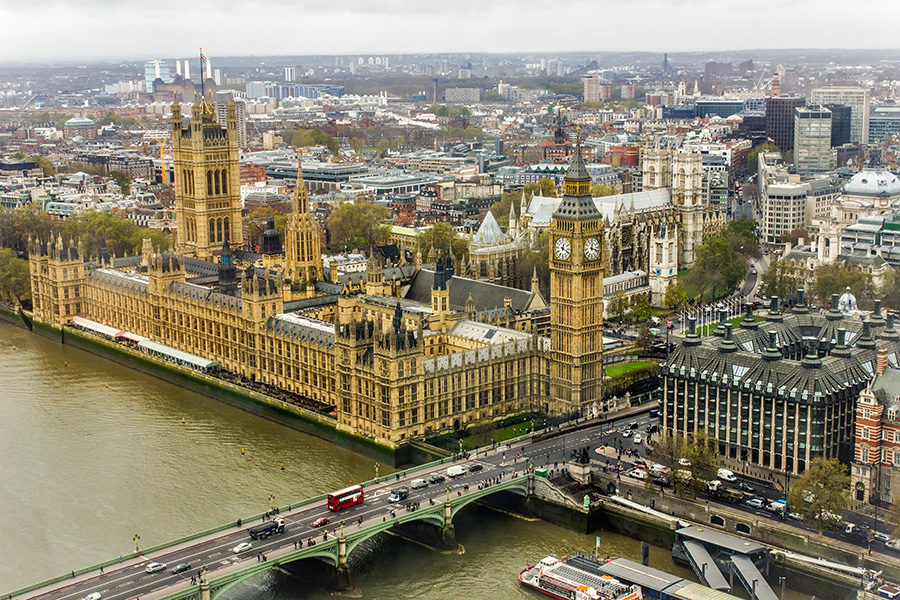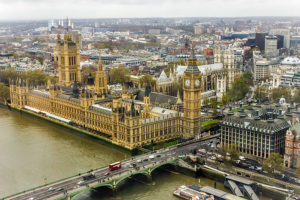UK government opens consultation on gambling sector RET levy

The DCMS proposes to raise £100m for the National Health Service through a direct levy on gambling operators.
UK.- The UK government’s Department of Culture, Media and Sport has opened a consultation on proposals to implement a levy on gambling operators to fund research, education and treatment (RET). It hopes the levy, proposed in the government’s gambling white paper, will raise £100m a year for the National Health Service (NHS).
The mandatory levy would be set at 1 per cent of gross gambling yield for online operators and 0.4 per cent for betting shops and casino operators. The difference in the rates is said to be based on both operating costs and the “levels of harmful gambling” associated with each sector.
DCMS Secretary Lucy Frazer said: “All gambling operators will be required to pay their fair share and this consultation is an opportunity for the industry, clinicians, those who have experienced gambling harm and the wider public to have their say on how the proposed gambling operator levy should work.
“The introduction of this levy will strengthen the safety net and help deliver our long-term plan to help build stronger communities while allowing millions of people to continue to gamble safely.”
The levy will be overseen directly by the NHS, replacing the current system in which GambleAware acts as the grant-making body dispersing funds received from operators’ current voluntary donations. Passing responsibility to the NHS is intended to create greater independence after stakeholders raised concerns about GambleAware’s proximity to the industry.
The NHS said: “Under the proposed levy, the gambling industry will no longer have a say over how money for research, prevention and treatment is spent. Instead, the Gambling Commission will distribute funding directly to the NHS and UK Research and Innovation (UKRI), which coordinates research and innovation funding, under the strategic direction of the government.”
It’s expected that part of the funds will be used to expand the UK’s network of specialist gambling clinics. NHS England has already announced plans to open new gambling clinics in Milton Keynes, Derby, Bristol, Liverpool, Blackpool, Sheffield and Thurrock.
Gambling minister Stuart Andrew MP said: “We know that gambling addiction can devastate lives, which is why we are working quickly to implement our bold plans for reform. This consultation brings us a step closer to being able to provide £100m of new funding for research, prevention and treatment, including ring fenced investment for the NHS to help gambling addicts.
“Gambling firms should always pay their fair share and this new statutory levy will ensure that they are legally required to do just that.”
The opening of the gambling levy consultation comes on the heels of the DCMS’s consultation on stake limits for online slots, which closed on October 4 after the deadline was put back by two weeks due to an error in data in documentation.
The move to centralise funding could provoke discontent among third-sector providers. Organisations such as GamCare, which runs the UK’s National Gambling Helpline 24/7, and the youth-focused Ygam, have been asking for clarity on the matter. GamCare has called for third-sector funding to be ring fenced, claiming the such bodies provide 90 per cent of treatment and support services.
The industry lobby group the Betting and Gaming Council (BGC) has been quick to comment on the consultation. It argued that the levy should also apply to the National Lottery.
It said: “[the levy] must also be applied on a sliding scale, with smaller percentage contributions from land-based operators, including independent betting shops on our high streets that have struggled to recover after the pandemic and incur disproportionately higher fixed costs.
“There must also be adequate oversight to ensure levy funds are only distributed to charities and organisations delivering genuine RET services to ensure long-term, sustainable funding – including protecting existing third sector providers who are already doing vital work and who may now be at risk.”
The BGC said that its members’ current system of voluntary donations will generate £110m for March 2024.











